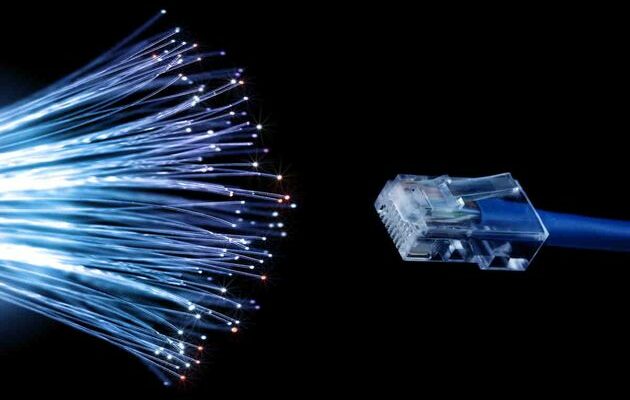An Internet connection cut or at very limited speed, an overbilling of a telephone subscription… each year, thousands of French people seize the Mediation of electronic communications after having exhausted all the avenues of appeal with the customer service of their operator. Created in 2011, this independent body tries to settle disputes between consumers and their supplier, thus relieving the courts.
Good news, the current mediator, Valérie Alvarez, received 25% fewer referrals in 2022. A clear slowdown that she attributes to better customer management by professionals, and the slowdown in fiber connections noted by the Arcep observatory, the regulatory authority for the telecoms sector.
Scheduled end of ADSL
However, 2022 has not been a particularly calm year. Between the generalization of fiber optics, the scheduled end of the marketing of ADSL offers and the development of the 5G network, the market is undergoing profound changes.
This vast migration to new technologies is reflected in the main areas of litigation. According to the annual report of the Mediation, mobile telephony remains stable, with 39% of referrals. The share of fiber increased by 6 points in one year to represent 36% of disputes. In constant decline since 2019, ADSL comes last with 21% of the reasons for dissatisfaction (- 8 points).
The transition from one technology to another is not without difficulty. Up two points, technical problems are the main reasons for dissatisfaction (28%) in disputes relating to the contract, invoicing, termination or associated services.
A figure that rises to 45% for fiber (+ 3 points). “Technical ineligibility, technical malfunctions due to unsecured cabinets, unauthorized disconnection of consumers by technicians for the benefit of the customer to be connected…” the problems encountered by subscribers are multiple and varied in nature.
Similarly, disputes related to services operated by operators or their subcontractors are on the rise (19%, +3 points). The Mediation was seized in particular for “damage to the consumer’s home by the technician, the removal of the ADSL cable, cuts in electrical wires, ADSL link or TV antenna, damaged walls”.

The connection, object of all fears
For Valérie Alvarez, these figures reflect the problems encountered by subscribers with the deployment of fiber. “Consumers fear that when switching from the ADSL network to the fiber network, they will be faced with difficulties installing fiber at home, such as the eligibility of their home or simply not being able to have a fixed line ( ADSL, fibre) and/or mobile or satellite. »
Despite the efforts undertaken by the operators in terms of connection, the mediator points to recurring problems concerning the quality of access to fiber “while looming on the horizon of 2026 the closure of ADSL with the end of the copper “. It also saw the emergence in 2022 of new connection difficulties linked to new houses.
“It is incomprehensible for consumers in the 21e century of not succeeding in being connected to a fixed network even though their neighbors are, she believes. It is therefore urgent to curb these situations, either by the actions of the professionals themselves or by the action of the public authorities or by the joint action of the two. »
A situation that the mediator considers all the more problematic since subscribers cannot turn to the operator in charge of Universal Service, whose mission was terminated in December 2020. Arcep recalls, however, that Orange is committed to the Government to maintain its “main subscription” and “telephone social reduction” offers.

Subscribers “in a situation of abandonment”
For Valérie Alvarez, “the announced closure of the switched telephone network and ADSL to which are added the quality problems of the fiber network and at the same time the absence of an operator in charge of the Universal Service have the result of leaving certain consumers in a situation of abandonment”.
“They cannot be eligible for PSTN, ADSL or fiber even though their neighbors are entitled to it and very often they are located in areas where 4G coverage is limited and does not allow them to benefit of a 4G box. “A grotesque situation experienced by a certain number of French people on the territory.
To come to their aid, Jean-Noël Barrot, Minister Delegate in charge of the digital transition and telecommunications, evoked, in December, the creation of a “right to very high speed for all at an affordable price”, and accompanied by a guaranteed speed of 30 Mb/s.
